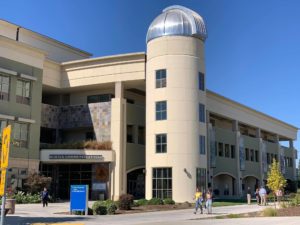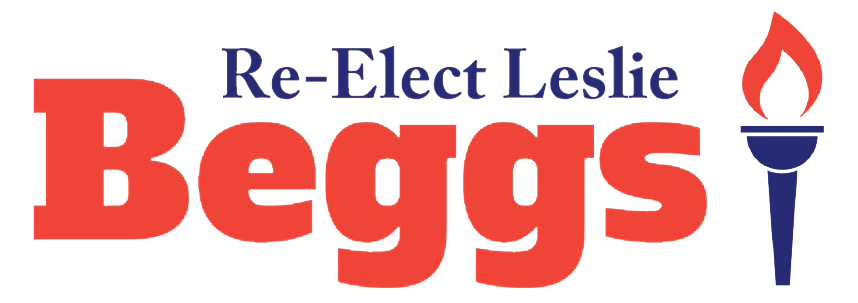Under the leadership of Trustee Beggs and her colleagues on the YCCD Board, the District has made a broad range of improvements. Over the past 8 years, the board and district have:
Academics & Job Skills
- Expanded to 23 the number of Dual Enrollment agreements that give high school students access to college courses on their own campuses, allowing them to receive both high school and college credits.
- Expanded the number of slots available in our Nursing Program, responding to community needs.
- Introduced a four-year degree in Respiratory Care at MJC – one of few such degree programs in the state.
- Secured $2 million in federal support to reinvigorate our Fire Science Academy, providing new equipment and other resources.
- Created Career Technical Education (CTE) partnerships with local companies to train students for jobs in the community. In a recent partnership between MJC’s Industrial Electronics Program and Frito-Lay PepsiCo, for example, employees were trained on-site and received MJC Electro-Mechanic Certificates at completion, along with significant pay raises.
- Funded a range of CTE projects with Strong Workforce grants, including developing curriculum for a Cyber Security program, expanding the Welding program, and creating a new program in Engineering & Industry Automation.
- Earned recognition for MJC CTE programs, named “Strong Workforce Stars” by the California Community Colleges Chancellor’s Office.
- Earned recognition from the National Agriculture Science Hall of Fame and California Outstanding Community College Agriculture Program for our strong Agriculture programs.
- Directed the Chancellor to gather and analyze data to identify needs and improve our programs and services districtwide.
- Assisted faculty in creating a committee that identifies and eliminates barriers to student success – based on feedback from students themselves – to support our focus on serving ALL students.

- Launched the Guided Pathways program, providing students with a clear “road map” from registration to graduation, with integrated guidance and support. We were one of only 20 community colleges chosen by the state to pilot this program in 2020.
- Supported innovation grants that engage students in creative problem-solving and teamwork.
- Pivoted mid-semester when the Covid lockdown occurred, moving from face-to-face instruction to remote instruction and certifying the faculty in online teaching.
- Provided faculty and students with upgraded equipment to improve online, hybrid and in-person instruction.
- Toured MJC’s east campus with a disabled faculty member to see our campus from his perspective, resulting in the Board upgrading some wheelchair ramps and making other campus-wide accessibility improvements.
- Used Measure E bond funds to develop the Great Valley Outdoor Lab to showcase native habitat for K-14 students

- Brought classes to the incarcerated in area prisons, to support their education, rehabilitation and job prospects upon release.
Received continuing grants from the U.S. Department of Education, funding our TRIO Student Support Services program which helps veterans, low-income, first-generation, and students with disabilities thrive and graduate.
Fiscal Stability
- Hired a chancellor who has revamped and streamlined the district’s administrative structure, and who continues to make sensible adjustments in management structure.
- Directed the chancellor to identify and implement financial efficiencies in all operations.
- Standardized management contracts, slashed bloated 18-month golden parachutes and required more rigorous performance reviews.
- Opposed (and voted against) putting any new administrative hires into higher salary brackets than warranted by usual standards of placement.
- Improved accountability for employee travel by requiring monthly travel reports as specified by Policy 7400.
- Improved transparency and accountability by tightening rules for no-bid contracts.

- Continued maintenance & remodeling of designated buildings under bond Measure E.
- Supported our refinance of eligible General Obligation Bonds to reduce interest costs and ease the burden on local taxpayers.
Free Speech & Civil Discourse
- Consistently protected freedom of expression for both students and faculty.
- Continued at all times to welcome all views, hear all stakeholders, and listen to all perspectives, both on campus and off.
- Crafted a landmark Due Process Policy that provides consistency and fairness in handling investigations involving students, volunteers and all employees, anticipating recent legal changes in Title IX guidance at the federal level.
- Helped draft the District’s annual Strategic Priorities, which since 2020-21 has always included, “Foster an institutional culture that creates a positive educational environment, including utilizing principles that are guided by due process, open discourse, academic freedom and viewpoint diversity.”
- Declined to mandate COVID vaccines or boosters, but allowed individuals to decide for themselves, instead requiring testing and other safety precautions, such as HEPA air filtration.
- Encouraged and ensured regular collegial meetings between constituent group leaders and the chancellor and presidents, a practice that had been discontinued by prior administrations.
- Hired a chancellor who doesn’t expect the board to “rubber-stamp” administrators’ plans, which would disenfranchise constituent groups and the community to which trustees are accountable. Instead, our trustees listen, study, ask questions and lead.
- Helped improve communication, understanding, morale and respect for minority viewpoints at the board, faculty and campus levels.
- Revised the Board’s Resolution on Racism draft, which passed unanimously, to help soothe tensions at a time of national discord.
- Remained a strong advocate for maintaining the Faculty Liaison position to facilitate problem-solving and preserve a line of clear communication between faculty and the board.
